Five scholars from ������Ƶ were announced this week as part of the newest cohort of Canada Research Chairs (CRCs).
Established 20 years ago, the Canada Research Chairs program continues to provide opportunities for researchers to excel in their fields and build teams of experts at Canadian institutions. The announcement made on Wednesday December 16, 2020, included 259 new and renewed CRCs.
“We are very proud of our Canada Research Chairs,” says Dr. Alice Aiken, Vice President Research and Innovation at ������Ƶ. “With projects focused on creating renewable energy materials, making our ocean more sustainable, and the examination of work, economy and development in rural Atlantic Canada, these talented researchers are helping to make our province, country and world a better place.”
The also made an important investment towards these Chairs through the John R. Evans Leaders Fund (JELF). This includes more than $14 million to 58 Canada Research Chairs at 27 universities for the cutting-edge equipment they need to carry out their important work. At ������Ƶ, the four new CRCs will receive just over $1 million from CFI.
Meet ������Ƶ’s newest Canada Research Chairs:
Alison Thompson, Faculty of Science
Tier 1 Canada Research Chair in Pyrrole Chemistry for Chemical Biology and Energy
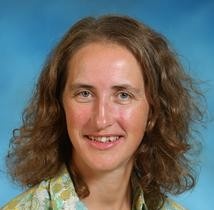 Pyrrole is an attractive component of materials used in studying and treating disease and in the use of light to generate responses that report sensing or enable storage/delivery of energy. Dr. Thompson’s research includes the development of sensors to monitor glucose levels in humans, or air-stable enzymes involved in biosynthesis and of materials for redox-flow batteries. It includes generating fundamental knowledge of (poly) pyrroles that emit light from the red into the infrared. Underpinning all of these is the development of practical synthesis of molecules incorporating pyrroles, syntheses which are robust, economical and tolerant of a wide variety of substituents.
Pyrrole is an attractive component of materials used in studying and treating disease and in the use of light to generate responses that report sensing or enable storage/delivery of energy. Dr. Thompson’s research includes the development of sensors to monitor glucose levels in humans, or air-stable enzymes involved in biosynthesis and of materials for redox-flow batteries. It includes generating fundamental knowledge of (poly) pyrroles that emit light from the red into the infrared. Underpinning all of these is the development of practical synthesis of molecules incorporating pyrroles, syntheses which are robust, economical and tolerant of a wide variety of substituents.
Ghada Koleilat, Faculty of Engineering
Tier 2 Canada Research Chair in Advanced Materials for Energy Application
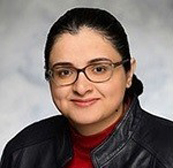 Advanced material innovations are needed to develop immediately deployable versatile breakthroughs in renewable energy research. Solution-processed based photovoltaics offer the promise of sustainable and scalable energy conversion at a fraction of the cost of traditional single-crystal photovoltaics. In addition, solution-processed solar cells are prime candidates for facile integration in flexible and even stretchable systems. Dr. Koleilat’s research program is focused on:
Advanced material innovations are needed to develop immediately deployable versatile breakthroughs in renewable energy research. Solution-processed based photovoltaics offer the promise of sustainable and scalable energy conversion at a fraction of the cost of traditional single-crystal photovoltaics. In addition, solution-processed solar cells are prime candidates for facile integration in flexible and even stretchable systems. Dr. Koleilat’s research program is focused on:
- Rational Molecular Design based on advanced material innovations
�� - Scalable Deposition of Highly Oriented Crystal Structures resulting in efficient solar cell designs
�� - Engineering Mechanically Compliant Solar Converters that can be integrated in wearable electronics and more.
Ruth Musgrave, Faculty of Science
Tier 2 Canada Research Chair in Physical Oceanography
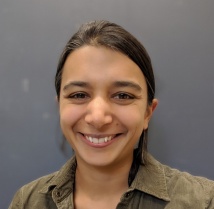 By investigating the physics behind ocean mixing, Dr. Musgrave’s research will address a key uncertainty in the field of numerical climate modeling and prediction.
By investigating the physics behind ocean mixing, Dr. Musgrave’s research will address a key uncertainty in the field of numerical climate modeling and prediction.
The spatial and temporal distribution of ocean mixing is mostly determined by the dissipation of internal waves, yet their energy pathways from generation through dissipation are not fully understood. Dr. Musgrave will study internal wave environments at several dynamically distinct locations in the Pacific, Atlantic and Southern Oceans to determine these energy pathways, with results that can be generalized to the global ocean and used to improve our ability to predict future climate states.
Ali Nasiri, Faculty of Engineering
Tier 2 Canada Research Chair in Ocean Engineering
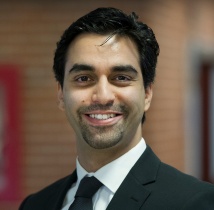 The goal of Dr. Nasiri’s research is to realize the full potential of state-of-the-art wire arc additive manufacturing ��(WAAM) technology to fabricate large-scale components from stainless steel and corrosion-resistant alloys, with tailored properties at drastically reduced production time and cost for marine and offshore applications. Through ground-breaking research and commercialization, the objectives of this program are to:
The goal of Dr. Nasiri’s research is to realize the full potential of state-of-the-art wire arc additive manufacturing ��(WAAM) technology to fabricate large-scale components from stainless steel and corrosion-resistant alloys, with tailored properties at drastically reduced production time and cost for marine and offshore applications. Through ground-breaking research and commercialization, the objectives of this program are to:
��
- Develop a versatile robotic WAAM-platform capable of manufacturing large-scale engineering components with controlled microstructure and mechanical properties
�� - Understand the corrosion performance of the fabricated parts in harsh marine environments
�� - Advance WAAM technology for hybrid manufacturing and additive repairs
��
Rita Orji, Faculty of Computer Science
Tier 2 Canada Research Chair in Persuasive Technology
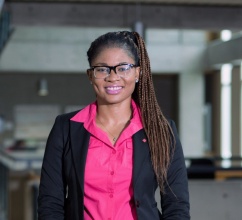 Persuasive technologies are purposefully designed to motivate people toward behaviours that benefit them—such as exercising, eating healthy foods, saving energy or dealing with depression. However, to be really effective, these technologies need to be personalized.
Persuasive technologies are purposefully designed to motivate people toward behaviours that benefit them—such as exercising, eating healthy foods, saving energy or dealing with depression. However, to be really effective, these technologies need to be personalized.
Dr. Orji is leveraging the increasing integration and penetration of technologies (such as mobile phones) into our lives to design personalized persuasive technologies that can empower and motivate people to achieve their goals. Ultimately, she and her research team aim to improve the lives of Canadians—particularly at-risk Canadian youths and under-served populations—by focusing on areas like safety, security and health and wellness.
Renewed Research Chairs
In addition to the new Chairs listed above, five of Dal’s existing CRCs were renewed.
Megan Bailey, Faculty of Science
Tier 2 Canada Research Chair in Integrated Ocean and Coastal Governance
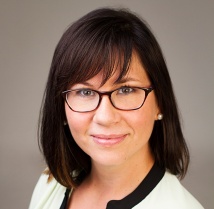 Dr. Bailey’s research works to define and study seafood sovereignty, which can be referred to as the right of peoples to define and control their seafood systems in culturally appropriate, ecologically sustainable, and socially just ways, be that as it relates to fish and seafood production or consumption. She contributes to seafood sovereignty as it pertains to the sustainable seafood movement and to Inuit Nunangat. Dr. Bailey’s goal is to contribute to equitable opportunities and outcomes as they pertain to our use of marine resources.
Dr. Bailey’s research works to define and study seafood sovereignty, which can be referred to as the right of peoples to define and control their seafood systems in culturally appropriate, ecologically sustainable, and socially just ways, be that as it relates to fish and seafood production or consumption. She contributes to seafood sovereignty as it pertains to the sustainable seafood movement and to Inuit Nunangat. Dr. Bailey’s goal is to contribute to equitable opportunities and outcomes as they pertain to our use of marine resources.
David Barclay, Faculty of Science
Tier 2 Canada Research Chair in Ocean Technology Systems
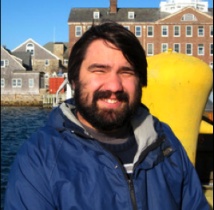 The world’s oceans are vast, remote, and physically harsh. These qualities mean it is challenging to measure ocean properties, biological activity, and the impacts of humans on oceans. Through measurements and modelling of ocean noise, methods for using the noise itself as a sensing tool can be developed, allowing the observation of important physical processes and properties of the ocean, surface, and seabed. Better relating these mechanisms to the level and directionality of ocean noise provides a means to predict the ocean soundscape in time, space, and frequency, and improves our ability to monitor human and marine animal underwater activity.
The world’s oceans are vast, remote, and physically harsh. These qualities mean it is challenging to measure ocean properties, biological activity, and the impacts of humans on oceans. Through measurements and modelling of ocean noise, methods for using the noise itself as a sensing tool can be developed, allowing the observation of important physical processes and properties of the ocean, surface, and seabed. Better relating these mechanisms to the level and directionality of ocean noise provides a means to predict the ocean soundscape in time, space, and frequency, and improves our ability to monitor human and marine animal underwater activity.
Erin Bertrand, Faculty of Science
Tier 2 Canada Research Chair in Marine Microbial Proteomics
M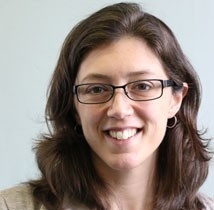 arine microbes form the base of marine food webs and play critical roles in the ocean’s response to climate change. Despite this, many unanswered questions about what controls activity of marine microbes remain. Dr. Bertrand’s research is developing new ways to measure and predict microbial activity in the ocean. These new measures and predictions will improve our understanding of what controls marine microbial activity and how that may change in the future ocean. In particular, this research is making significant progress towards understanding microbial relationships in the ocean, especially those that involve sharing and competing for scarce resources.
arine microbes form the base of marine food webs and play critical roles in the ocean’s response to climate change. Despite this, many unanswered questions about what controls activity of marine microbes remain. Dr. Bertrand’s research is developing new ways to measure and predict microbial activity in the ocean. These new measures and predictions will improve our understanding of what controls marine microbial activity and how that may change in the future ocean. In particular, this research is making significant progress towards understanding microbial relationships in the ocean, especially those that involve sharing and competing for scarce resources.
Karen Foster, Department of Sociology and Social Anthropology
Tier 2 Canada Research Chair in Sustainable Rural Futures for Atlantic Canada
 Dr. Foster’s research program focuses on work, economy and development in rural Atlantic Canada, with an eye to understanding changing livelihoods, regional economic and development policy, shifting social inequalities, and intergenerational relationships. Supported by her CFI-funded Rural Futures Research Centre, this research has two overarching aims. The first is to gather and analyse data to help Atlantic Canadians understand themselves and to contribute to policy discussions about the region. The second is to bring Atlantic-focused research in conversation with international scholarly work on rural sustainability and development. Specific studies carried out under this umbrella include examinations of occupational succession in rural businesses, import replacement, rural housing stock and needs, and the gig and informal economy in rural areas.
Dr. Foster’s research program focuses on work, economy and development in rural Atlantic Canada, with an eye to understanding changing livelihoods, regional economic and development policy, shifting social inequalities, and intergenerational relationships. Supported by her CFI-funded Rural Futures Research Centre, this research has two overarching aims. The first is to gather and analyse data to help Atlantic Canadians understand themselves and to contribute to policy discussions about the region. The second is to bring Atlantic-focused research in conversation with international scholarly work on rural sustainability and development. Specific studies carried out under this umbrella include examinations of occupational succession in rural businesses, import replacement, rural housing stock and needs, and the gig and informal economy in rural areas.
Pedram Sadeghian, Faculty of Engineering
Tier 2 Canada Research Chair in Sustainable Infrastructure
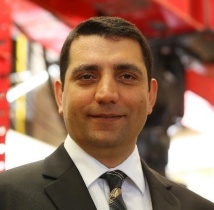 Dr. Sadeghian is exploring sustainable solutions that can be applied to different features of our infrastructure. He and his research team are using advanced materials and innovative structural systems (such as fiber-reinforced polymer composites) to rehabilitate existing infrastructure and build new infrastructure that will offer longer and better service along with less environmental impact. Dr. Sadeghian believes it is vital to Canada’s economy that cost-effective, durable materials and innovative structural systems be explored to ensure that any new infrastructure we build offers superior performance and durability. His research is supporting this goal while also working to extend the useful lives of existing infrastructure components so they can maintain their service levels and support new developments.
Dr. Sadeghian is exploring sustainable solutions that can be applied to different features of our infrastructure. He and his research team are using advanced materials and innovative structural systems (such as fiber-reinforced polymer composites) to rehabilitate existing infrastructure and build new infrastructure that will offer longer and better service along with less environmental impact. Dr. Sadeghian believes it is vital to Canada’s economy that cost-effective, durable materials and innovative structural systems be explored to ensure that any new infrastructure we build offers superior performance and durability. His research is supporting this goal while also working to extend the useful lives of existing infrastructure components so they can maintain their service levels and support new developments.
For more information on the Canada Research Chairs program, visit the .

